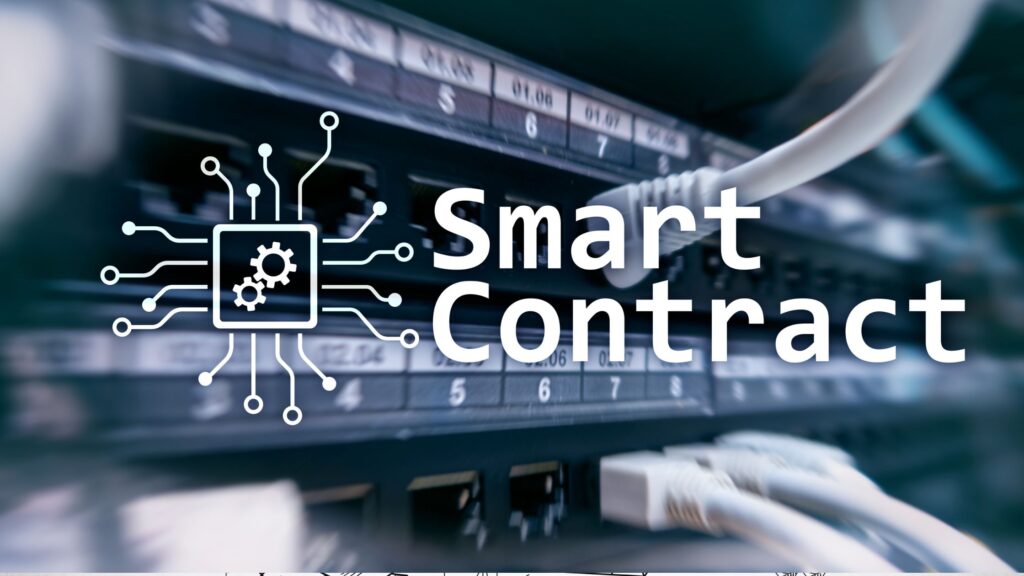This guide answers curious questions about how smart contracts are changing business deals today.

As a business owner, sometimes you get worried about the risks involved in transacting with external bodies, especially the unknown ones. There are times you wish a signed deal could bypass the hassle of unforeseen factors like failure to comply, bankruptcy, or other extenuating circumstances and execute itself.
Usually, while there are intentional efforts in place to curb these vulnerabilities, people now break agreements as if they never mattered. This is where smart contracts come in as the real game changer.
What Are Smart Contracts?
Smart Contracts are simply self-executing contracts with coded terms. As a type of software that stands between parties to a deal, smart contracts transform the way deals are agreed upon, executed, and finalized.
Parties involved in a particular deal usually agree to give the software the authority to manage whatever transactions they are working on together. This way, smart contracts help to automate tasks, eradicate middlemen, and build trust.
A freelancer gets paid immediately through smart contracts when a project is delivered, without an intermediary to oversee the contract. Smart contracts were introduced to help business owners and individuals with smooth and efficient transactions.
What Smart Contracts offer
1. Transparency
Smart Contracts create data that nobody can tamper with. Not just any type of data but one that adds a layer of security and transparency to the transaction.
The transactions are also always visible to everyone on the network. Therefore, nothing is withheld, nothing is hidden. In fact, once an agreement is reached, no one can change or delete these transactions.
2. Speed
This type of software enhances speed and effective work deliveries. As a result of its speed, you do not need to wait for approvals or intermediaries to get work done.
Also, you do not need to earn or gain the trust of any other parties. External parties, such as brokers or lawyers, are irrelevant to enforce or carry out a transaction. This makes smart contracts fast and disruption-free.
3. Cost-effective
An automated smart contract is usually cost-effective. It cuts down the need to trust or pay middlemen. The processes involved in a transaction are streamlined. Therefore, eradicating unnecessary legal fees and paperwork.
Why Smart Contracts Are a Big Deal for Businesses
From simple to complex transactions, businesses adapt smart contracts to eliminate trust issues. These self-executing contracts disregard the need for middlemen and create work independence. The most common way to achieve this is the use of blockchain technology. Blockchain technology is a record-keeping technology that helps to alleviate trust issues.
This technology bridges the trust gap that exists between people and organizations during a transaction. It runs simple and detailed transactions with deals involving multiple parties.
The people involved in the transaction get to share and access valuable data required to securely record, store, manage, and transmit a transaction in a whole host of domains. Blockchain is more unique due to its cordial relationship to trust building.
It eradicates the need to build or maintain any form of trust in the first place. A Nigerian entrepreneur can use a smart contract to secure a deal with a UK client with no lawyer needed.
Contracts that meet the set terms and conditions always get executed. Based on research, by 2024, 25% of global businesses will have adopted blockchain for contracts. This way, these businesses and even diaspora investors have fewer worries about being scammed or deprived of their rights after a transaction takes place.

Real World Uses of Smart Contracts
Supply chain management
Making use of smart contracts for a supply chain requires no daily management. Intermediaries get eliminated, and this reduces cost and manual oversight. Deliveries against agreement or outside the schedule automatically trigger escalation measures. As a result, it helps to maintain a smooth operation.
Leveraging blockchain, smart contracts also make tracking and verifying authenticity an easy task. This way, there is room for smooth delivery across suppliers, distributors, and retailers.
Decentralized applications
Decentralized applications automate processes. For instance, crowdfunding or decentralized finance deals can now be signed without intermediaries. These trustless agreements execute predefined rules, requiring no manual intervention.
An instance is a crowdfunding dApp that automatically releases funds once project goals are met.
Cryptocurrencies Payment
Smart contracts enable tokenized payments. This revolutionizes how freelancers and startups transact. Automating payments in cryptocurrencies eliminates intermediaries. It also reduces fees and ensures instant settlements.
For instance, a freelancer’s work triggers automatic token release upon client approval. This enhances trust and efficiency. It also supports scalable, transparent financial ecosystems for crypto-driven businesses.
Automated Legal Agreements
Smart contracts streamline complex deals. This is by automating legal agreements for real estate or partnerships. These contracts enforce terms without intermediaries, reducing costs and delays. An instance is automatic property transfers or partnership profit split upon meeting.
Challenges and What is Next
Smart Contract also faces some challenges. Some of these challenges and proffered solutions are:
Technical Complexity – Smart contracts usually require technical expertise for development and integration. This however poses challenges for small businesses. Without in-depth blockchain knowledge, entrepreneurs may face high costs or errors in implementation.
Simplified platforms, training, and user-friendly tools make this software easily adopted by non-technical business owners.
Regulatory Gaps – Smart contracts operate in a regulatory area, with unclear legal frameworks in many regions, including Nigeria. This creates non-compliance risks and disputes, especially for cross border deals. Small businesses hesitate to use smart contracts due to potential legal costs.
The government has identified some of these regulatory gaps and is now working to establish clearer blockchain regulations. Entrepreneurs are encouraged to familiarize themselves with the needed updates, legal experts, and usage of compliant platforms. This will help them mitigate risks when the need arises.
Conclusion
Smart contracts are affecting the rules of business deals because they make deals management faster, cheaper, and more transparent. Web3 technology now offers Africans and those in the diaspora, the chance to compete globally without the usual middlemen. Embrace blockchain technology, save time and focus on growth. Ready to learn more about building your business’s structure and future? Subscribe to the SimplVest newsletter.












